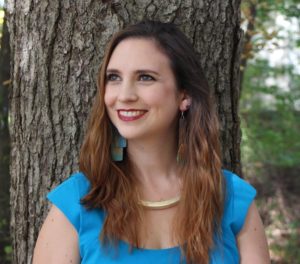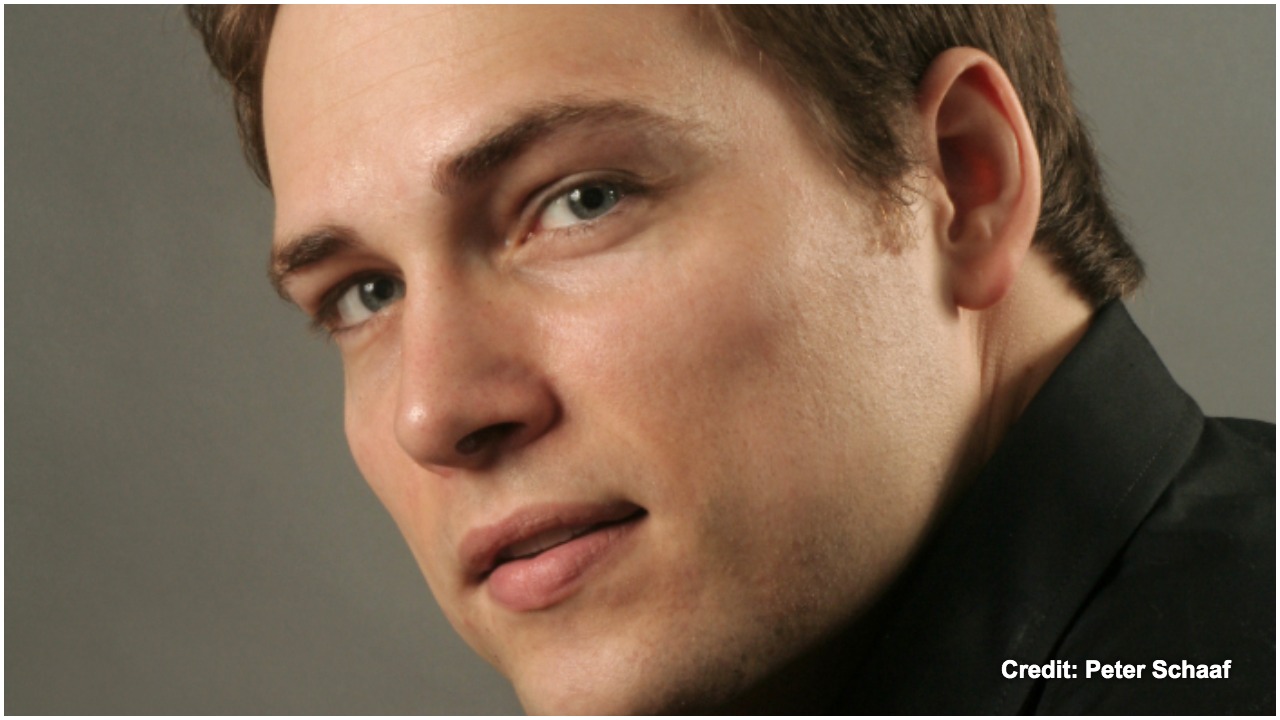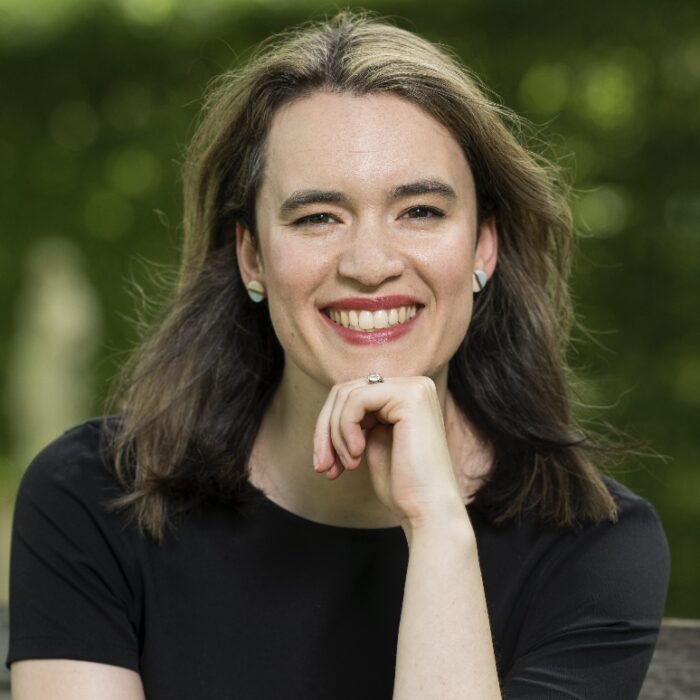
Q & A: Composer Finola Merivale on her Virtual-Reality Opera “Out of the Ordinary”
By John Vandevert“What is opera, and what does ‘operatic’ and ‘opera’ mean to you?” It is a question that has the potential to uproot tradition.
No longer bound by traditional methods and procedures (not even 3-dimensions!), artists now use ‘opera’ in imaginative ways: a profession of some emotion and inner feeling that lies deep within their core. It is my goal, through interviews with all manner of people involved in the multifaceted world of ‘operatic theatre,’ to examine projects and works with an aim of figuring out just what, exactly, it means to do opera in the 21st century: what is the statement that modern opera makes?
It was my pleasure to “Zoom” with Irish composer Finola Merivale about her collaboration with Irish National Opera (INO) on the novel opera project “Out of the Ordinary/As an nGnách,” the first community-based, virtual-reality (VR) opera ever to have been created. Inspired by INO’s commitment towards bringing opera to the people in unique and innovative ways, the VR-based opera draws upon the mythical founding of Ireland and Irish sea journey tales known as “Immrama” to tell the story of Nalva and her people as they leave their home and venture into the unknown future.
From 360° animated environments and underwater sealife to operatic mimes and a split ending depending on where you look, INO’s two-year long project has successfully redefined what what it means to make an opera in the 21st century. Having taken inspiration from another VR-opera project, INO has challenged us all to think much more deeply about the question, “Who is opera for?”
OperaWire: Why did you choose to become a composer?
Finola Merivale: So I knew I wanted to compose since I was about 19 or 20. It just clicked, and I couldn’t imagine doing anything else. Plus, the music being created today was really unknown to me. I had grown up playing classical piano as a teenager, yet it never occurred to me to even think about what was happening now. Do you know what we’re composers doing today? Did they even exist? Did women compose as I exist? It was only when I began discovering contemporary music did I realize how rich contemporary music was. When I started my undergraduate degree, I became incredibly inspired by the different sound worlds being created. A lot of what I create today is inspired by my own experiences.
The climate crisis, for one, sexism experienced by myself, feelings about certain issues. I love collaborating as well. I just love being able to work really closely with musicians and explore their instruments, explore new things, and learn from them. There’s one quote that I love from composer John Luther Adams when asked if he considered other careers. He said no one else can write the music that happens in his head. No one else is going to write the music in your mind because it’s your idea, and I love that, especially if there is a day when it’s hard to write.
OW: What does music mean to you?
FM: It’s a form of communication without using words necessarily. An exploration of the self in a way as well. It’s also a real treat to finally have venues to perform in after having them taken away during COVID for so long. Seeing music performed live, performers giving it their all, and knowing that I created it created that. It’s an amazing feeling.
OW: Where are you in your education and how has it influenced you?
FM: Right now, I’m in my final year at Columbia University. It’s amazing because they have the historic Computer Music Center, and fascinating work happens all the time. I’m taking courses in instrument building and digital music construction, things like mixing and recording. And funnily enough, I do have a professor who was teaching virtual reality. He got really into creating virtual reality worlds, but I had not actually taken this class. Irish National Opera came to me with the project, and they were really excited about bringing virtual reality into the mixture as well as collaboratively working with communities.
Also, using virtual reality is a great way of making opera more accessible, a particular mission of the Irish National Opera. Changing perceptions of what opera could be while also changing the nature of the actual performance space, these things are incredibly important to me.
OW: How do you come to imbuing your works with topical themes?
FM: It wasn’t really a decision, necessarily. It always existed but naturally developed in a stronger way when I got to Columbia. I started using more topical themes around the time I began my Ph.D., so about five years ago. It’s not that I’m trying to make a big statement with my music but rather foster conversation, you know? Each piece is also a piece of me, so if I’m not using these themes, I’m not being truthful.
OW: What made you jump into experimental compositions?
FM: I’m developing my skills more and more in the electronics world, while my works are mainly chamber and acoustic sort of traditional music. But I love creating really immersive music that has big energy and lots of layers to weed through. I just love the excitement and what can happen. While my music is still “traditional,” I am slowly becoming more and more experimental with each passing project. I just put out my first debut portrait album, and there are actually 44 custom pieces and one electroacoustic piece featuring a violin on there.
I am getting more comfortable in exploring new sound worlds that aren’t possible with acoustic music, and I often use field recordings to help me with this. On the album, I include an element or two from nature, even if you can’t hear where it’s coming from. I know that it’s there.
OW: What was it like having a hands-on relationship with the public during “Out of the Ordinary?”
FM: The theme of the opera wasn’t my decision but a community one, so that was new. We were working with three different communities as we were developing the story, and I also was teaching lots of composition workshops. We had groups of teenagers from really rural areas around Ireland, and then we also had a group of Irish speakers. Many had never seen opera before. Many had, so I first introduced lots of contemporary music to them but also encouraged them to compose their own music even if they didn’t understand notation. Using household objects, music for the body, and field recordings. It was more about listening, listening to their environments, listening to their worlds, and then taking lots of field recordings from that. And then, we created music together for those workshops.
When it came to composing, after the pandemic, we started to think of a story and a narrative. Once I got the libretto, that was the moment when I began to compose on my own. I went to Inishmaan, which is the little island where the operatic plot takes place. I started writing all these vocal lines while I was on this island surrounded by the ocean and stone walls. Our lead singer, Naomi Louise O’Connell, who plays Nalva, was living there at the time. So we would meet every couple of days, and I would show her what I had, and she would sing through it to talk about things that really worked. I’d also meet once a week with the community and show them what I have so they could feel involved in the process as well.
OW: How did you adapt your musical language to fit the communities you worked with?
FM: The choral parts were written for a mixture of amateurs and professionals and with the participation of those from Inishmaan and local community choirs from Dublin and Tala. I was trying to be very pure and keep the material quite simple for them. We had to kind of do everything in such a strange process. We had to record the choir before the instruments, so they were also singing acapella. You know, they practiced, but it was still a strange process. I was inspired by chant and the simplicity of that style. Sometimes I wanted to branch into four-part harmony, but then I’d have to say no, this is a community choir. But this didn’t stop me from being musical with my language.
OW: How did you strike a balance between “opera” and “atmosphere”?
FM: The entire opera itself was only 20 minutes, so we were working with a very small amount of time anyways, so there was no need for a full orchestra anyways. There’s already so much going on that a small cast and orchestra were necessary. You’re in this virtual reality world. There’s stuff happening all around you. There are so many things to look at and experience outside of music. So many people come out of the experience and say, “Oh, I want to go straight back in and do that again.”
However, the score still has a very big sound because there are these two community choirs as well as nine instruments if you include the community members. So I think it’s kind of like a chamber ensemble mixed with an almost large ensemble. Plus we have two opera singers. The opera also has a lot of scene changes, and because of that there’s a lot of musical and dramatic movement. And sometimes, musically, my composer instinct would be to kind of sit in this world for like 3 minutes. But because you’re in this virtual reality world, and you’re looking around, so we had to balance the environment with the plot. So it was just a different way of composing because it’s not all about the music and the drama on stage. It was about like this working in an audio-visual place as well.
When I was working on the score, it was very much working with and through the libretto. Being very aware of the atmosphere of each individual scene was very important. In our opera, the director and I had a more collaborative relationship because it wasn’t so much that the composer created an opera and then shipped it off to the director, who figures out how to stage it. She was directing this whole virtual reality world. Often our conversations were about timing because 4 minutes in VR is not the same as 4 minutes in real life. That’s why we really couldn’t push the time more because VR can be a bit overwhelming the first time.
OW: Where is opera today in its history?
FM: During the pandemic, so much was shut down. Yet it actually created so much innovation. Kamala Sankaran wrote a zoom opera that was performed on Zoom. Yeah, and she’s done opera in virtual reality too. After the heat of COVID, Opera suddenly feels a lot more accessible now. There are chamber operas, five-minute operas, and even podcast operas.
It’s been interesting seeing operas being filmed; Boston Lyric Opera did a whole project, too, with Caroline Shaw and Shelley Washington, and many others, which was amazing. I think today’s conceptions of opera are much more flexible. I think it’s much more open-minded as to what opera is. Accessibility is a big thing for me, and I think COVID helped push composers and companies to try and be more accessible with their productions and projects.


